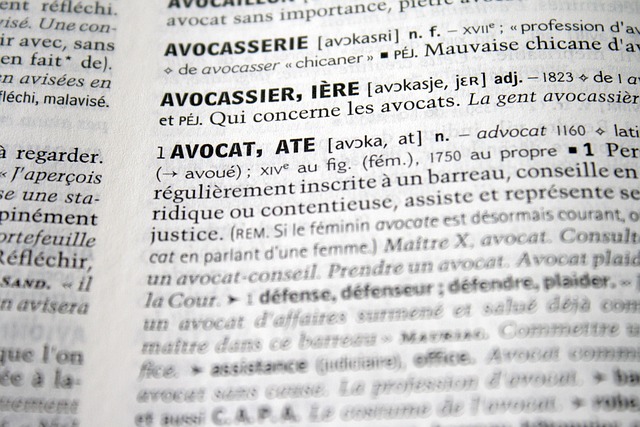How Due Process Affects Sentencing ensures fair trials and protects individuals from arbitrary justice. It includes procedural safeguards like presumption of innocence, burden of proof, legal representation, and appeal rights. Due process guides sentencing by balancing public opinion with legal scrutiny, preventing cruel punishment, and considering unique case records. Understanding its role is vital for navigating criminal law, especially in high-stakes cases and white-collar defenses, while addressing mental health impacts on fair sentencing outcomes.
In the intricate realm of criminal law, understanding the dynamics of cases is paramount. This article delves into the foundational aspects and principles that shape criminal legal proceedings. We explore key factors like the role of due process in ensuring fair sentencing, the influence of legal standards and procedures, and the impact of prior convictions. Furthermore, we analyze how mental health issues play a significant role in sentencing outcomes, shedding light on the multifaceted nature of criminal law cases and the importance of How Due Process Affects Sentencing.
- Understanding Criminal Law Cases: Basics and Principles
- The Role of Due Process in Ensuring Fair Sentencing
- Legal Standards and Procedures Guiding Sentencing Decisions
- Impact of Prior Convictions on Criminal Sentencing
- How Mental Health Issues Influence Sentencing Outcomes
Understanding Criminal Law Cases: Basics and Principles

Criminal law cases are governed by a complex interplay of statutes, precedents, and constitutional principles, with due process being a cornerstone. Understanding criminal law involves grasping fundamental concepts such as the presumption of innocence, the burden of proof, and the right to a fair trial. These principles ensure that individuals accused of crimes receive equitable treatment and protection from arbitrary or unjust actions.
The impact of due process on sentencing is profound. It mandates that defendants are given proper notice of charges, an opportunity to be heard, and a fair and impartial proceeding. This includes the right to legal representation, cross-examination of witnesses, and appeal. Additionally, due process safeguards against cruel and unusual punishment, ensuring sentences are proportionate to the crime committed, thereby upholding the integrity and fairness of the criminal justice system. Factors like avoiding indictment without probable cause or considering an unprecedented track record in unique cases play into this balance, as do jury trials where public opinion meets legal scrutiny.
The Role of Due Process in Ensuring Fair Sentencing

The concept of due process is a cornerstone in ensuring fairness within the criminal justice system, particularly when it comes to sentencing. This legal principle guarantees that individuals accused of crimes are afforded their right to a fair trial and just treatment under the law. In the context of criminal law cases, especially high-stakes cases where the consequences can be severe, due process plays an indispensable role in shaping the sentencing process.
It involves a series of procedural safeguards designed to protect the rights of the accused. One of its key aspects is the right to a jury trial, allowing for an impartial third party to weigh the evidence and determine guilt or innocence. This mechanism not only adds transparency but also helps in achieving extraordinary results by ensuring that sentencing decisions are based on robust evidence and legal principles, rather than arbitrary factors. By upholding due process, the judiciary maintains the integrity of the criminal justice system, ultimately fostering public trust and confidence.
Legal Standards and Procedures Guiding Sentencing Decisions

In criminal law, the process of sentencing is a critical phase that follows a conviction, and it’s heavily governed by legal standards designed to ensure fairness and due process. These standards play a pivotal role in shaping the outcome for both the accused and the victims. The U.S. Constitution, through the Fifth and Eighth Amendments, establishes key principles that guide sentencing decisions, primarily focusing on protecting individuals from arbitrary or disproportionate punishment.
Legal procedures governing sentencing involve a complex interplay of factors, including the nature of the crime, the defendant’s background, and mitigating or aggravating circumstances. The judge’s role is crucial here, as they must consider all relevant information and apply the appropriate legal standards. For instance, in white-collar defense cases, where winning challenging defense verdicts for his clients is the ultimate goal, understanding how due process affects sentencing is essential. This ensures that the rights of the accused are respected while administering justice.
Impact of Prior Convictions on Criminal Sentencing

In criminal law, the impact of prior convictions on sentencing is a complex issue that’s deeply influenced by how due process affects the outcome. Due process ensures that defendants face charges fairly and receive a just trial, but it also plays a critical role in subsequent sentencing proceedings. A defendant’s history of prior convictions can significantly shape their sentence, often leading to harsher penalties. This is because judges frequently consider past transgressions as indicators of an individual’s character and likelihood to reoffend. An unprecedented track record of criminal activity may result in longer sentences or more restrictive conditions.
However, the process isn’t without safeguards. Defendants have the right to legal representation during sentencing hearings, allowing them to argue against harsh penalties. Additionally, the principle of avoiding indictment—ensuring that sentences are proportionate to the offense—is paramount. While prior convictions can influence sentencing, they don’t automatically determine a defendant’s fate. The interplay between due process and prior convictions underscores the need for balanced and individualized approaches in criminal law cases.
How Mental Health Issues Influence Sentencing Outcomes

Mental health issues play a significant role in shaping sentencing outcomes in criminal law cases, often impacting the fairness of the process as governed by due process principles. The court’s consideration of an accused person’s mental state is crucial, especially when dealing with individuals suffering from severe psychiatric disorders or cognitive impairments. These conditions can affect an individual’s ability to understand the nature of the charges, assist in their defense, and make rational decisions, thereby influencing their behavior both during and after the crime.
The impact of mental health on sentencing is multifaceted. In some instances, it may lead to reduced sentences or alternative forms of punishment, as courts recognize the need for specialized care and rehabilitation rather than solely punitive measures. This approach has gained traction across the country, with an unprecedented track record of successful reintegration programs that benefit both individuals with mental health issues and the wider philanthropist and political communities. However, the balance between leniency and justice remains delicate, requiring careful assessment and individualized consideration to ensure due process is served.
In navigating complex criminal law cases, understanding the intricate interplay between due process and sentencing is paramount. As discussed, this includes recognizing the fundamental principles guiding fair trials, the influence of legal standards and procedures, and the profound impact of mental health considerations. By adhering to these guidelines, the justice system strives to ensure that each individual receives a sentencing decision that reflects both the gravity of their offense and their unique circumstances, ultimately upholding the principles of fairness and due process.






